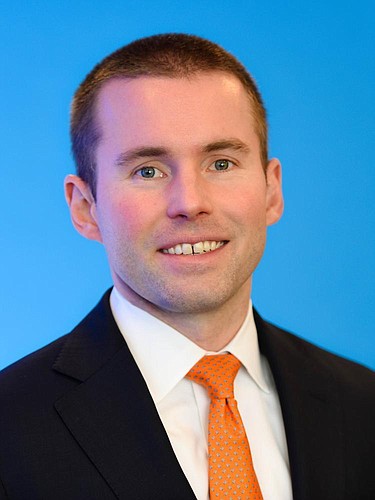
Northeast Florida residents probably see Jacksonville as an attractive place to live.
However, a metric devised by economic researchers at BBVA bank rates it differently.
BBVA rates the Jacksonville area as 128th in attractiveness among 381 U.S. metropolitan areas.
During a talk Jan. 16 to the Association for Corporate Growth’s North Florida chapter, BBVA Senior Economist Boyd Nash-Stacey tried to cushion the blow.
“That sounds bad. But effectively that’s in the top third of markets,” Nash-Stacey said during the luncheon event at The River Club Downtown.
BBVA rates metro areas on 86 indicators. Jacksonville has a lot of positive factors but where it needs improvement is in innovation, he said.
The top markets in BBVA’s ranking, Silicon Valley, San Francisco and Seattle, are known for their culture of innovation.
Nash-Stacey offered a generally positive outlook for the economy in 2020. The U.S. economy has been growing for 130 months, and the long recovery has many people assuming the economy is due for a fall.
“That’s not true,” he said.
Actually, BBVA was forecasting a 60% chance of a recession several months ago but it now assesses the chances at less than 10%.
“What changed was monetary policy,” Nash-Stacey said.
The Federal Reserve Board lowered short-term interest rates three times last year, which significantly lowered the risk of a downturn, he said.
Even if economic data for the fourth quarter of 2019 and this year’s first quarter show slower growth, that shouldn’t raise concerns about a recession, he said.
“Our overall outlook is still positive.”
A slow growth rate is becoming more normal for the economy, Nash-Stacey said, with less chance of big spikes or big declines.
“On average we should see a less dynamic business cycle,” he said.
Nash-Stacey expects better growth for Florida than the rest of the country. BBVA is forecasting 3% growth for Florida this year, which is 1.2 percentage points higher than the expected growth for the country.
“The risk of recession in the Florida economy is very low,” he said.
Florida’s main areas of growth are in the real estate, professional services and health care sectors. That reflects a shift away from goods-producing businesses into more service businesses, he said.
The lower interest rates after the Fed’s easing should help real estate markets this year.
“2020 seems to be shaping up as a very good year for real estate,” Nash-Stacey said.
Nash-Stacey didn’t bring up the presidential election in his forecasts but in response to a question, he said the election results may impact the financial markets but probably won’t change the economic outlook.
“I wouldn’t panic,” he said.
“Even in the short run, it won’t have a major effect.”